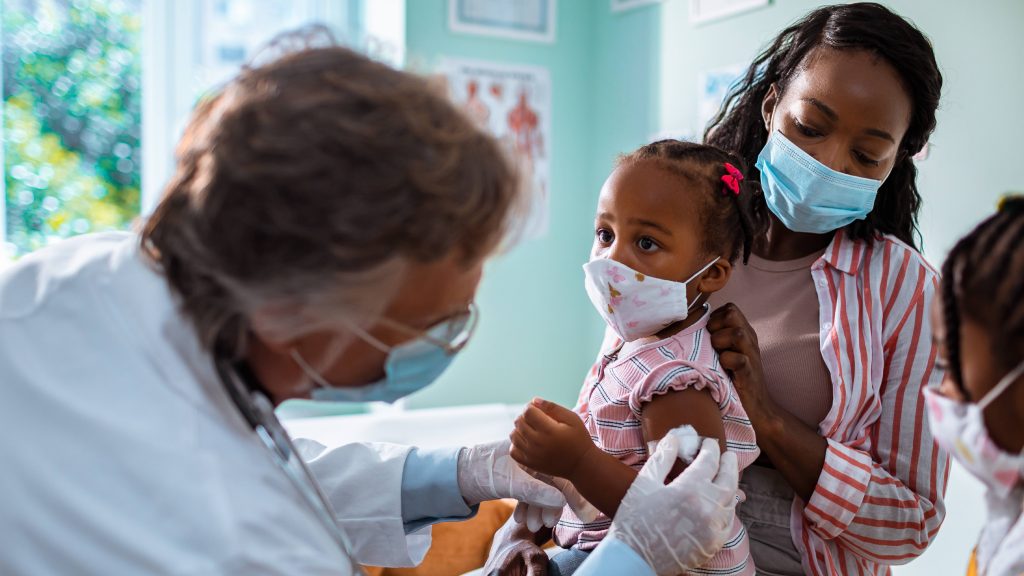
According to the Centers for Disease Control and Prevention (CDC), routine vaccinations for kindergarten in the U.S. fell to 93% during the 2021-2022 school year. That's the second year in a row routine vaccination rates decreased. The vaccines help prevent potentially fatal or severe illnesses, including diphtheria, measles, mumps, rubella, polio, tetanus, whooping cough (pertussis) and others.
The CDC says there are several reasons for the decline, including the possibility that misinformation about COVID-19 vaccines may have played a role.
"It can be confusing if you're a parent and you're looking for information about routine vaccines because there's a lot of great information online. But there's also a lot of misinformation. And sometimes it can be difficult to tell the difference between the two," says Dr. Nipunie Rajapakse, a pediatric infectious diseases physician with the Mayo Clinic Children's Center.
Watch: Dr. Nipunie Rajapakse talks about importance of routine vaccinations for children
Journalists: Broadcast-quality sound bites with Dr. Rajapakse are available in the downloads at the end of the post. Please courtesy: "Mayo Clinic News Network." Name super/CG: Nipunie Rajapakse, M.D./Pediatric Infectious Diseases/Mayo Clinic.
Dr. Rajapakse recommends talking to your child's health care professional for reliable information about routine vaccinations and websites such as mayoclinic.org and the CDC for evidence-based information.
"One of the specific vaccines that we've seen lower rates of is the MMR vaccine, or the measles, mumps and rubella vaccine," says Dr. Rajapakse. "This is a crucial vaccine, especially the measles component because we know once we drop below 95% protection in our population, we're at the highest risk of seeing larger measles outbreaks occur."
The CDC says the dip in MMR vaccine leaves about 250,000 kindergarten children in the U.S. potentially vulnerable to measles infection.
"That's why it's important, especially when kids are entering school, to ensure they're up to date with all of their vaccines. Many kids have fallen behind in the last couple of years with the COVID-19 pandemic," says Dr. Rajapakse.
Year-to-date, there have been two measles cases in the U.S., and in 2012, the CDC reported 121 confirmed measles cases. Along with pockets of measles outbreaks, sometimes related to travel abroad, Dr. Rajapakse says pertussis, or whooping cough, is another concern.
"We also see whooping cough outbreaks occur. And these are both vaccine-preventable infections, especially amongst the age groups that are most vulnerable to these infections. And, thankfully, while they're not super common, we do, unfortunately, see outbreaks happening in our communities. It's important that we get people up to date on their vaccines for these," says Dr. Rajapakse.
What is a measles infection?
Measles is a highly contagious viral infection that spreads when an infected person coughs or sneezes. The virus can live up to two hours in an airspace where an infected person coughs or sneezes. The symptoms of measles include cough, runny nose, inflamed eyes, sore throat, fever, and a red, blotchy skin rash. Also called rubeola, measles can be severe and even fatal for small children.
The CDC recommends all children get two doses of the measles, mumps and rubella (MMR) vaccine, starting with the first dose at 12–15 months old and the second dose at ages 4–6. Teens and adults who are unsure whether they are immune should contact their health care team.
What is pertussis or whooping cough?
Whooping cough (pertussis) is a highly contagious respiratory tract infection marked by a cough so severe it chokes away the ability to breath. Infants and toddlers are at the greatest risk of complications from whooping cough and are more likely to need treatment in a hospital. Complications can be life-threatening for infants younger than 6 months old.
Read about the vaccine schedules for children in the U.S.
Adult vaccination can protect against a number of diseases as well. Those include seasonal influenza, pneumonia, tetanus, pertussis (whooping cough), shingles, hepatitis A and hepatitis B.
Related posts:
- Why it’s critical for children to get their routine health care
- Mayo Clinic Minute: Children should have MMR vaccine for first day of school
- Mayo Clinic researchers recommend investments in vaccine safety in Nature commentary
For the safety of its patients, staff and visitors, Mayo Clinic has strict masking policies in place. Anyone shown without a mask was either recorded prior to COVID-19 or recorded in a nonpatient care area where social distancing and other safety protocols were followed.







